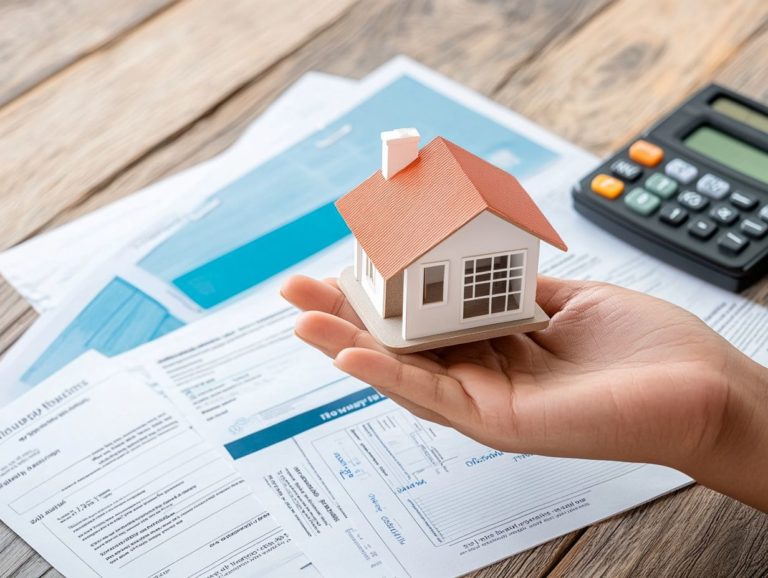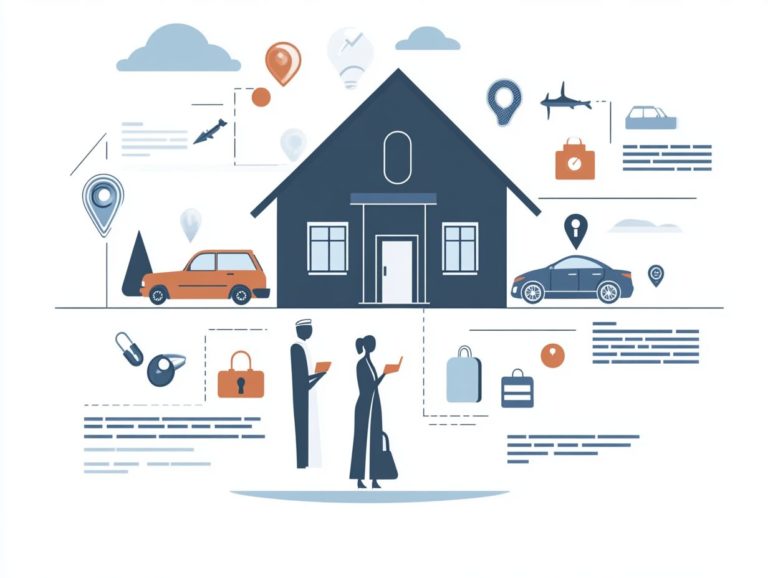The Importance of Home Insurance for Older Homes
Owning an older home offers a unique blend of charm and history, but it also brings its own set of challenges, particularly when it comes to insurance.
Grasping the nuances of home insurance is vital for protecting your investment. This article delves into the key elements of home insurance specifically designed for older homes, addressing common risks and highlighting the advantages of having the right coverage.
You ll find guidance on how to navigate your options and select the best policy tailored to your needs.
Whether you re a seasoned homeowner or venturing into the world of older homes for the first time, this overview will empower you to make informed decisions about safeguarding your cherished space.
Contents
Key Takeaways:
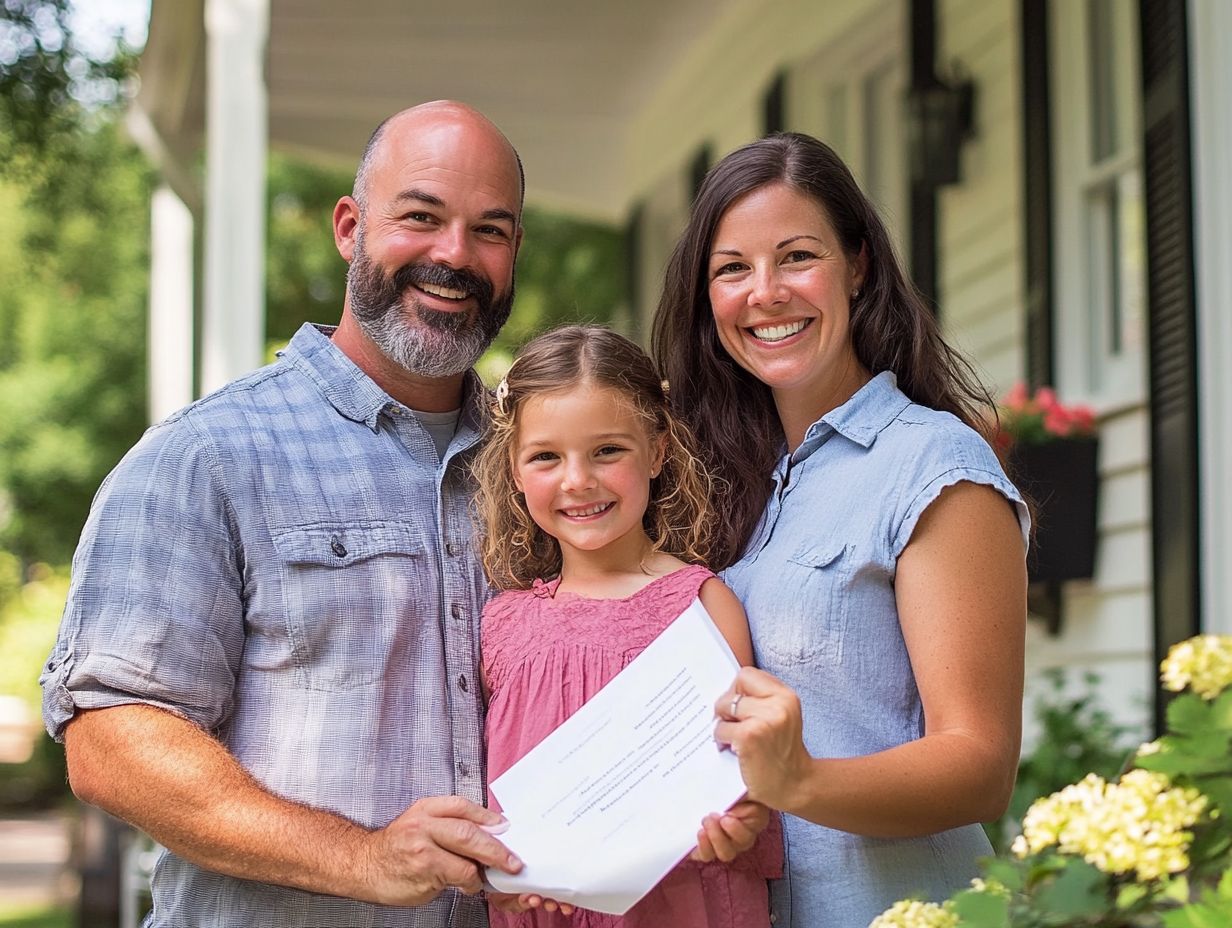
Home insurance is essential for older homes to protect against common problems and risks, such as structural issues and natural disasters. Insuring an older home can be challenging due to its unique characteristics and potential risks, but there are various coverage options available to provide adequate protection. One crucial aspect to consider is the importance of home inventory for insurance. When choosing home insurance for an older home, it is important to consider factors such as the home’s age, location, and potential risks. Don’t forget to shop around for the best policy that meets your needs and budget.
Understanding Home Insurance for Older Homes
Understanding home insurance for older homes is essential, as these properties present unique challenges and risks that demand specialized coverage. Additionally, the importance of home insurance for renters should also be considered to ensure adequate protection.
Older homes often use old building materials, plumbing systems, and roofing. These can influence your insurance costs and premiums.
Insurance providers also evaluate your home’s history of past claims and market value when determining suitable insurance options. Therefore, being well-informed about your policies and coverage requirements is crucial for homeowners like you.
What is Home Insurance and Why is it Important?
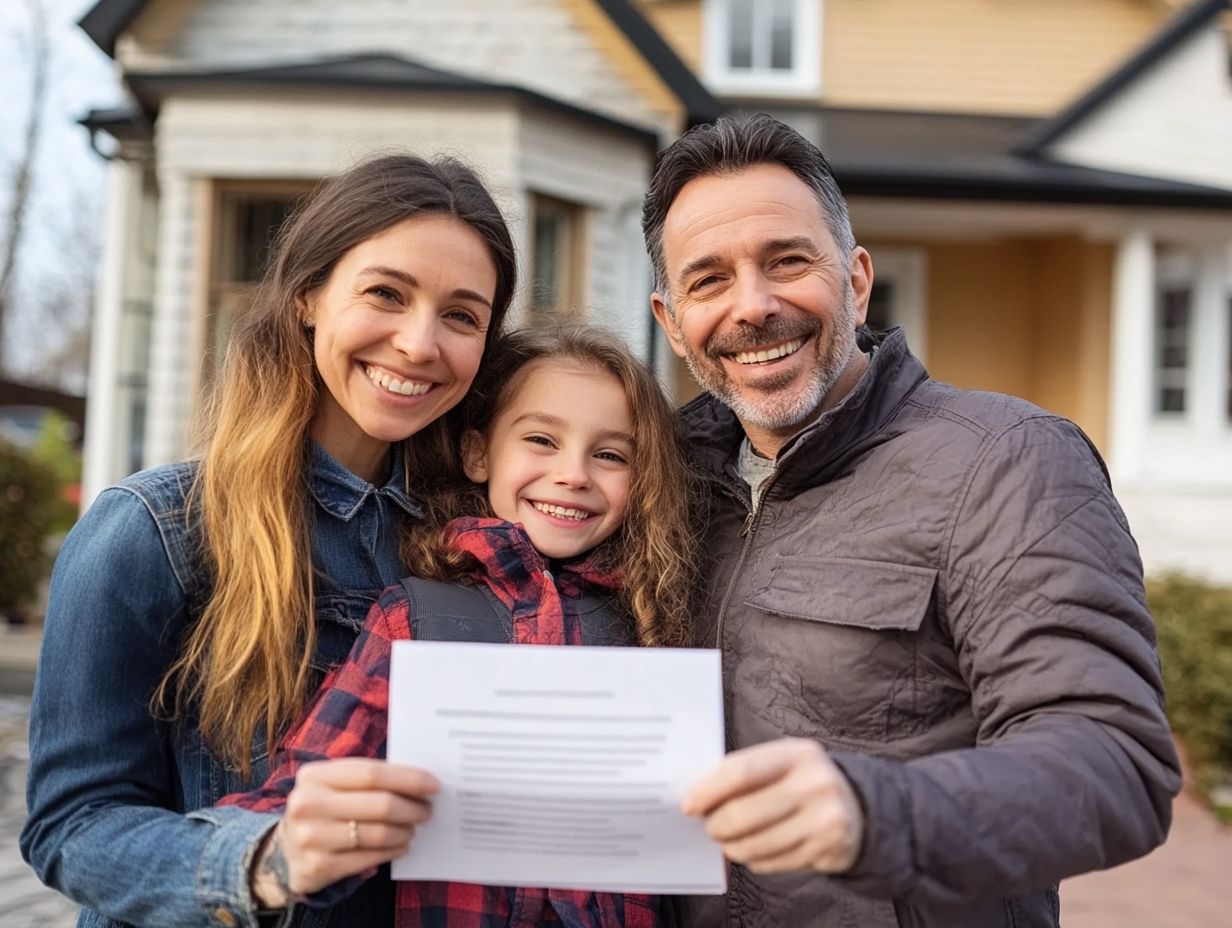
Home insurance serves as a vital form of property insurance, offering you financial protection against damages and liabilities tied to your residence. This coverage is your safety net, protecting your home and finances!
A homeowners policy safeguards the structure of your home while also providing liability coverage to shield you from legal claims arising from injuries that occur on your property.
Personal property coverage protects your belongings, such as furniture and electronics, ensuring you can recover should disaster strike. This type of insurance becomes especially crucial for older homes, which may be more vulnerable to wear and tear or unexpected events, including fires or theft.
By investing in this essential protection, you not only secure your financial interests but also gain peace of mind, knowing you re well-prepared to face any unforeseen challenges that may arise.
Challenges of Insuring Older Homes
Insuring older homes comes with its fair share of challenges, primarily due to factors like outdated building materials and heightened fire hazards. These elements often lead insurance providers to classify them as high-risk properties.
Common Issues and Risks

Older homes often present a unique set of challenges and risks that can significantly affect their insurability and the coverage options available to you.
These charming properties often have outdated plumbing systems, which are notorious for leaks and water damage, leading to costly repairs and potential claims. Aging roofing materials can deteriorate over time, increasing the likelihood of leaks and other weather-related damage.
Antiquated electrical wiring raises safety concerns as it may not comply with current code standards, posing a higher fire risk.
Each of these factors plays a pivotal role in the evaluation process carried out by insurance providers. They meticulously assess claims history and potential risks to determine the most suitable coverage options for your residence.
Benefits of Home Insurance for Older Homes
Home insurance presents a wealth of advantages for owners of older homes, offering specialized coverage tailored to safeguard against the distinct risks associated with these unique properties.
Don t wait for an unexpected event to happen; get the coverage you need today!
Protection Against Common Problems
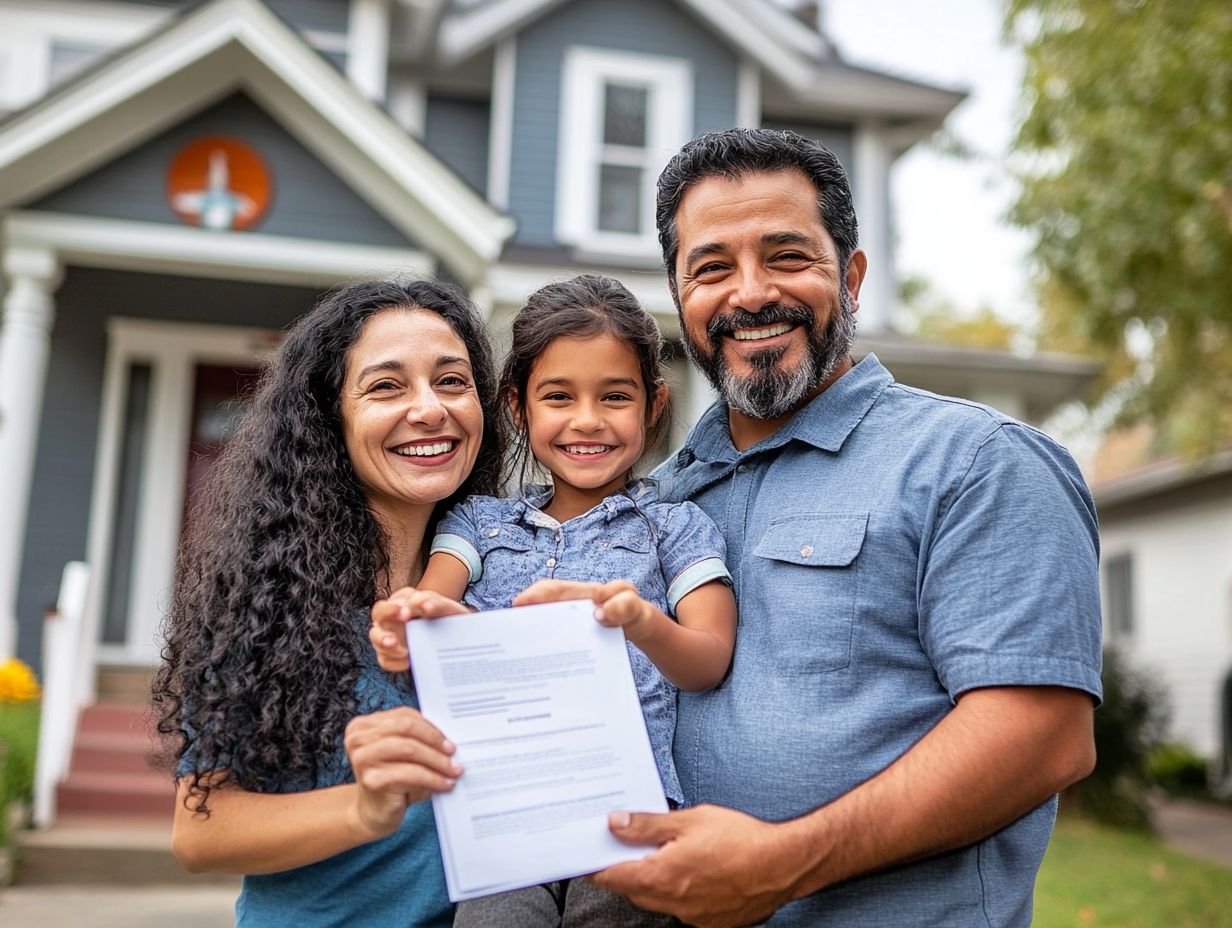
Home insurance for older homes serves as a safeguard against common issues like water damage, fire hazards, and liability claims that stem from the unique characteristics of these properties.
These homes often come with aging structures, including outdated plumbing and electrical systems. If left unchecked, these can lead to high repair costs.
As homes age, accidents can happen more often. This is especially true if staircases or walkways aren t up to modern safety standards.
Having the right insurance coverage shields you from unexpected repair costs and offers peace of mind. You can significantly reduce risks by incorporating essential safety measures like smoke detectors. This simple step not only protects you but also enhances your home s safety!
This proactive approach enhances your property’s resilience and ensures that you maintain a safe and secure living environment.
Types of Coverage for Older Homes
You have several coverage options available for older homes, including the HO-8 policy, a special policy for older homes that may not qualify for standard insurance.
Exploring Different Options
When exploring different insurance options for older homes, it’s essential to obtain multiple quotes from various insurance carriers. This approach ensures you secure the best coverage that aligns with your home’s market value.
This process gives you a clearer picture of the potential costs involved in insuring unique properties. It also helps you understand how various policies can meet your specific needs.
Conducting thorough insurance assessments is vital. You’ll want to evaluate your home s condition, its historical significance, and any potential risks tied to its age.
By comparing quotes from diverse providers, you can pinpoint differences in policy offerings and premium structures. This comprehensive analysis enables you to make informed decisions that cater to both your financial situation and your protection requirements.
How to Get the Right Home Insurance for Your Older Home
Securing the appropriate home insurance for your older home demands thoughtful reflection on your unique insurance requirements and the tailored coverage options at your disposal.
Act now to secure the best coverage for your cherished home!
Factors to Consider and Tips for Choosing a Policy
When choosing a home insurance policy, consider important factors. These include the age of your property, its claims history, and its overall market value.
Insurance premiums can vary significantly depending on the region where your home is located. Local building codes may also dictate necessary safety measures.
For example, if your home was built before certain regulations were enacted, it might require special endorsements, which are additional coverage options. While older homes can have a charming character, they often come with higher repair costs and potential risks that you ll want to assess.
To understand the details of selecting the right policy, be sure to compare multiple quotes, read the terms and conditions in detail, and consult with an insurance agent.
This will provide you with insights tailored to your specific needs, ensuring you make an informed decision.
Frequently Asked Questions
What is the importance of having home insurance for older homes?
Having home insurance for older homes is crucial. These homes may have structural weaknesses, outdated electrical systems, and other issues that can lead to costly repairs or even total loss in case of a disaster, making understanding the importance of home insurance essential.
What types of coverage are included in a home insurance policy for older homes?
A typical home insurance policy for older homes will include coverage for the structure, personal belongings, liability, and additional living expenses. Depending on the specific policy, there may also be coverage for specific risks such as floods or earthquakes.
Do insurance companies charge higher premiums for older homes?
Insurance companies may charge higher premiums for older homes due to the increased risk of damage and potential for higher repair costs. However, it is important to shop around and compare quotes from different companies to find the best coverage and rates for your specific home.
Are there any discounts available for home insurance for older homes?
Some insurance companies may offer discounts for homes that have been updated with modern electrical, plumbing, and heating systems. Homeowners can also qualify for discounts by installing safety features such as smoke detectors, burglar alarms, and sprinkler systems.
What should homeowners of older homes do to ensure adequate coverage?
Homeowners of older homes should regularly review and update their insurance policy to ensure adequate coverage. This includes updating the insured value of the home to reflect any renovations or improvements and making sure the policy includes coverage for risks specific to older homes.
What steps should be taken if a home insurance claim is denied for an older home?
If a home insurance claim is denied for an older home, homeowners should first review their policy to understand the reason for the denial. They can then contact the insurance company to appeal the decision or seek guidance from a professional insurance agent or attorney.
Start protecting your home today by getting quotes from various insurers!


